According to recent studies, there are already more than 22,000 start-ups worldwide that develop a brand around a single physical product or around a specific product group. These brands sell primarily, or exclusively, directly to the customer – i.e. D2C. The distribution channel is always online first. At a later stage, the online channels are often supplemented by own retail stores or new retail formats.
Our analyses show that these brands always operate their own e-shop and that social media also plays an essential role. Often these are supported by a variety of other sales and marketing mechanisms that may well be sector-specific.

Photo by John Schnobrich on Unsplash
The market potential
Depending on the industry, different terms are used for these start-ups: Direct Brands, D2C/DTC Brands, Digital Native Brands, Vertical Brands, Micro Brands, E-Commerce or Influencer Brands. According to initial forecasts, direct brands could already achieve double-digit market shares in some sectors in the next few years, putting pressure on established manufacturers as well as retailers. Although niches are usually dominated by a single direct brand, the large number of new companies within an industry is causing some serious change.

With www.direct-brands.de there is now a platform specifically designed for these brands, currently listing 650 brands in 60 sectors and new brands are added daily. Certainly the trend is now also becoming visible in Germany, and it is already leaving its mark in many sectors: it is not only stealing the show from leading brands, but affects also the growth of established companies.
D2C: New solutions through technical progress
In fact, due to the ongoing digitalization, all the technical prerequisites are now in place to launch brands at a fraction of previous costs. The success story of shopify alone is proof of how easily shops can be launched today. Other software providers such as shopware are following suit with innovative SaaS solutions. But also in all other areas (financing, R&D, production, logistics) new solutions are implemented that were not available to start-ups in the past.

Photo by Roberto Cortese on Unsplash
People ask themselves a lot where these direct brands are to be found at all. The answer is: Everywhere !!! Because even if you don’t drive a Tesla, as a consumer you have certainly already shopped at a Direct-Brand, although you might haven’t even noticed it. Also in Germany D2C brands can be found in more than 60 industries, primarily in sports, textiles, cosmetics, watches, jewelry, food, fitness, wellness as well as in the areas home, living and garden.
D2C brands at international level
The new brands mostly see themselves as digitally innovative, meaningful and often sustainable. The products are specific, functional and often emotionally linked to the stories of the founders. The brands thus hit the needs of consumers who have the desire to try something new and who have often lost confidence in the brands of the corporations.
Often we see an interesting effect in the perception of these brands: While especially older decision makers in the management levels have the feeling that these brands do not even exist, younger target groups have the impression that these brands are everywhere. Why? The answer lies in the usage and consumption of new media, especially social media: those who leave traces and reveal preferences will find the first direct brands, and then, by following these brands will become interesting for further brands in the targeting process… – a self-reinforcing system.
D2C brands in international comparison
It is no secret that Germany is always a few months behind the US when it comes to news on digital trends and innovations. However, this period seems to be much longer for direct brands, because a decade has passed since the first direct brand with Warby Parker was launched. Countless other brands have been created since then, there are the first listed unicorns and a large number of M&A activities in which corporations and retail chains have acquired attractive brands. The media coverage on this topic in the USA has definitely reached the mainstream.
We are now also seeing the first M&A activities in Germany, e.g. Beiersdorf bought the D2C brand Stop The Water While Using Me at the beginning of the year and Henkel recently acquired three direct brands with Hello Body, Banana Beauty and Mermaid+Me. However, we have not seen too much media coverage yet for these topics, because it seems as if many of them just end up with being labelled as a start-up.

Photo by Anete Lūsiņa on Unsplash
Direct-2-Consumer – more than just start-ups
My firm conviction is that we are not just seeing a trend here, but a long-term change in how brands are created and grow. And it’s not just about the few unicorns, but about the large number of ponies that are already romping around with a lot of verve.
Seen in this light, direct brands, D2C/DTC brands, digital native brands, vertical brands, micro brands, e-commerce or influencer brands are much more than just start-ups. They are the logical consequence of digital and technological advancements and they come at a moment when meaningfulness and sustainability are taking on a new significance. They therefore meet the requirements of the consumers, who are looking for brands that recognize their needs and then miraculously appear with their products in their Instagram news feed.
About the author Stefan Hövel

Over the last 20 years Stefan has accompanied several international companies in the development of digital strategies, innovations and ecosystems. In addition, he has been involved in the digital transformation of direct sales companies, the development of direct brands and the D2C strategies of manufacturers as managing director, manager and consultant. As a founder he has also accompanied several start-ups and NGOs. His conviction is that direct brands will not only enrich the brand spectrum, but also create completely new markets and business models.
If you have questions, don’t hesitat to contact Stefan via LinkedIn. He is looking forward to your message.


